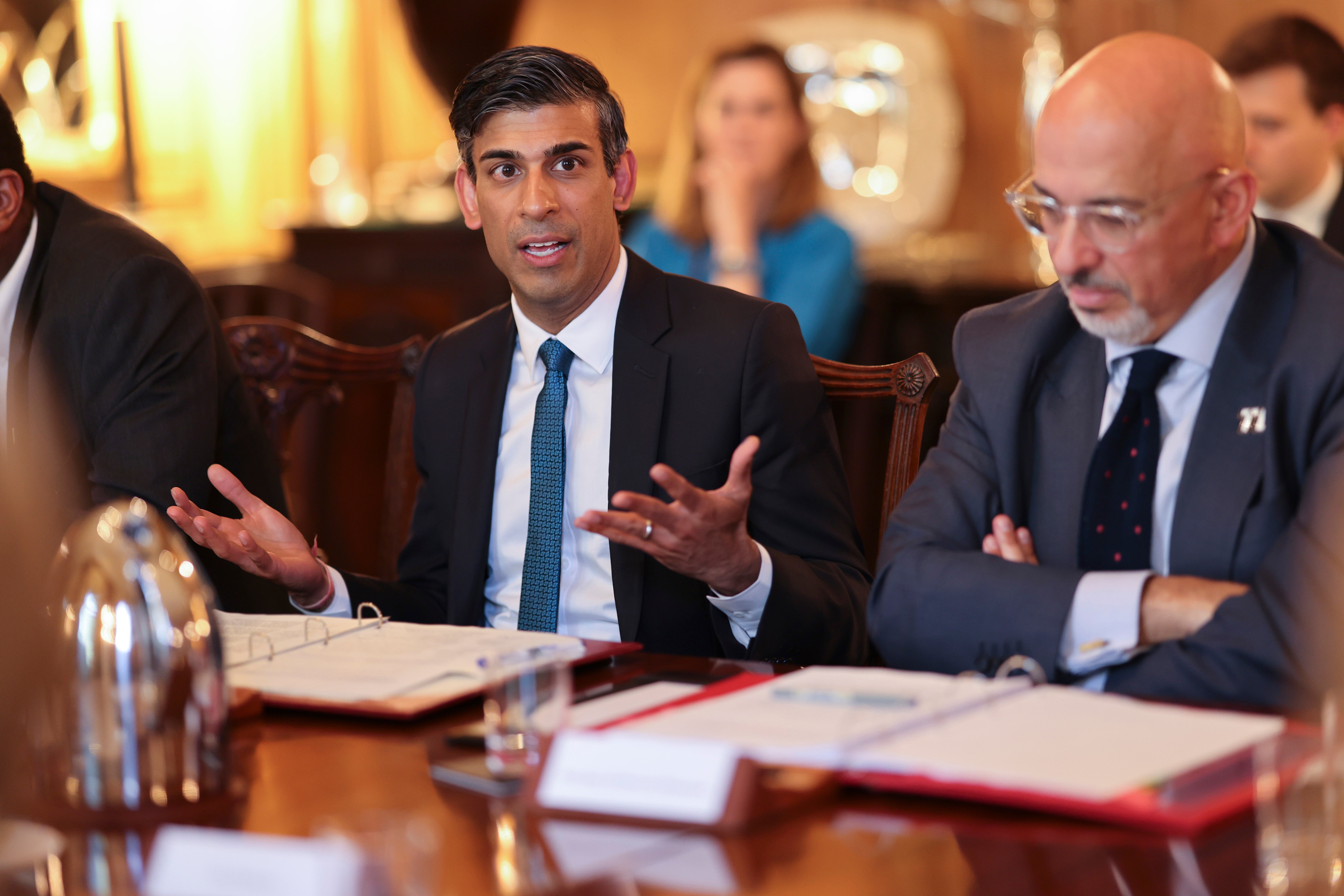To sack Nadhim Zahawi or stand by him? Rishi Sunak’s first big test
The prime minister has delayed a decision on whether the Conservative Party chair’s tax affairs are defensible, writes John Rentoul


Rishi Sunak promised that his government would be different from Boris Johnson’s because it would adhere to the highest ethical standards. He also implied that it would be more competent, which might matter more to the voters. The two things go together, and if the government becomes mired in sleaze, its reputation for competence in dealing with the cost of living, the NHS and small boats is likely to suffer too.
Hence the importance of the decision that now faces the prime minister: should he sack Nadhim Zahawi, the Conservative Party chair? Or should he back him to be bitter end? Some prime ministers would have made the decision by now, but Sunak suffers by being the most inexperienced of recent holders of the top job.
We can leave Liz Truss aside, because she was there for only 49 days, but she had sat at the cabinet table for eight years before taking office; David Cameron hadn’t been a minister, but leader of the opposition is possibly the most rigorous preparation for No 10.
Sunak’s only cabinet post has been chancellor, and that was for just two and a half years. As Gordon Brown discovered, the shift from 11 to 10 Downing Street is a shock. Like Brown, Sunak is thorough, going deep into the annexes of reports from the Scientific Advisory Group for Emergencies (Sage), for instance, during the pandemic.
That is what Sunak was doing with Zahawi’s complicated tax affairs – a task he has now handed to Sir Laurie Magnus, the adviser on ministerial standards. Judging by the difficulty that journalists, including on The Independent, have had until now in obtaining clarity about such matters, this could take some time. Sunak has bought some time, but the longer it takes, the worse it gets for the prime minister.
Sunak and Sir Laurie have to decide two things: whether Zahawi’s tax affairs are now in order; and whether the previous mistakes were really “careless and not deliberate”, as Zahawi claimed in his statement that HMRC had concluded.
It is surprising that Zahawi was negotiating with HMRC while he was temporary chancellor in Johnson’s twilight government, but that is not so directly Sunak’s problem (standards were lower then, but Winston Churchill negotiated his tax problems with the head of the Inland Revenue when he was chancellor, and continued to do so while he was prime minister.)
Sunak needs to make sure that there aren’t further embarrassments to come, and that the “not deliberate” line can hold. That HMRC imposed a 30 per cent penalty on Zahawi suggests that it might be hard for him to hold it. Without having access to the kind of information that No 10 is currently trying to extract from a minister on the brink, past experience is not good for Zahawi.
Indeed, some of that past experience is very recent. Gavin Williamson, who attended cabinet as minister without portfolio, resigned in November, just two weeks after he was appointed, when Wendy Morton, the former chief whip, referred him to the Independent Complaints and Grievance Scheme. That was over some sweary texts when he was out of office complaining that he had not been invited to the Queen’s funeral.
Williamson resigned voluntarily, but if he hadn’t I think Sunak would have sacked him. On the other hand, Sunak has withstood the hue and cry after Suella Braverman, the home secretary, and Dominic Raab, the deputy prime minister, both of whom have also been pursued by the “feral beast” of the media.
That was Tony Blair’s phrase, which has been deployed in their defence by Paul Goodman, the Tory former MP and editor of Conservative Home. Goodman dismisses complaints against them as being from people who disagree with Braverman’s Rwanda policy and from those who don’t like Raab’s manner.
Zahawi is different. As the investigators wade deeper into the grey areas of his tax affairs, public opinion will also be pushing Sunak towards a stricter interpretation of ministerial standards. A poll this morning found that 59 per cent think that Zahawi should be sacked, and only 14 per cent think he should stay on (28 per cent said they didn’t know).
Of course, any poll about any cabinet minister is likely to say that they should be sacked, if not actually jailed, and most of the respondents would know little more about the details than the polling company’s summary, which read thus: “Nadhim Zahawi, the chairman of the Conservative Party and former chancellor of the exchequer, has agreed to pay a settlement, said to be around £5 million, to HMRC over unpaid taxes. He has stated that the mistake was ‘careless and not deliberate’. Should the prime minister dismiss him from his cabinet position?” But those poll numbers are still bad.
Of the three integrity-based crises swirling around the prime minister today, Zahawi’s “careless mistake” is probably middling in seriousness. The least serious is Sunak’s fine for failing to wear a seatbelt; the most serious is probably Richard Sharp’s appointment as chair of the BBC by Johnson, after Sharp helped facilitate a credit facility for the former prime minister. Sunak will have to annul that appointment if he wants to continue to distance himself from the ethical reputation of the Johnson government.
But his decision on Zahawi’s future will say more about the standards of integrity that he upholds as prime minister. If he gets this wrong, the wider reputation of his government will suffer.






Join our commenting forum
Join thought-provoking conversations, follow other Independent readers and see their replies
Comments